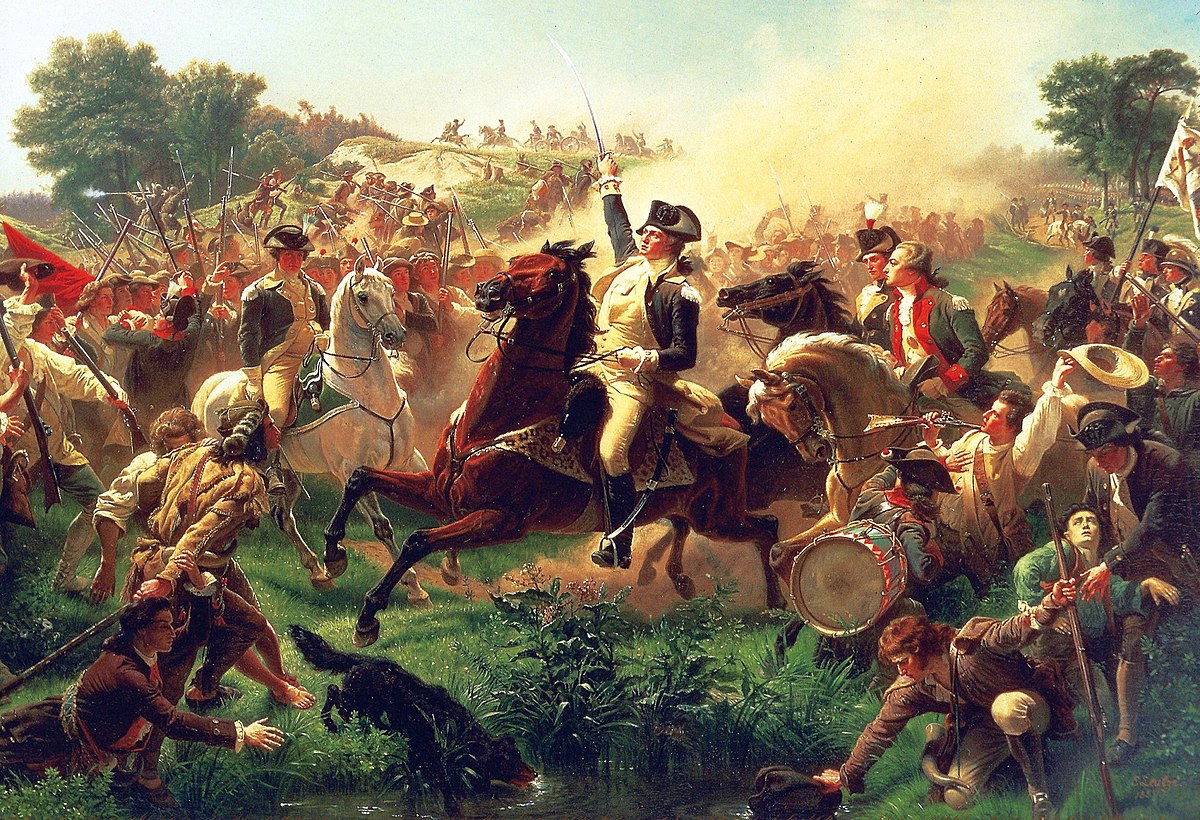
Battle of Monmouth
Freehold Township, NJIn February 1778, the French-American Treaty of Alliance tilted the strategic balance in favor of the Americans, forcing the British to abandon hopes of a military victory and adopt a defensive strategy. Clinton was ordered to evacuate Philadelphia and consolidate his army. The Continental Army shadowed the British as they marched across New Jersey to Sandy Hook, from where the Royal Navy would ferry them to New York. Washington's senior officers urged varying degrees of caution, but it was politically important for him not to allow the British to withdraw unscathed. Washington detached around a third of his army and sent it ahead under the command of Major General Charles Lee, hoping to land a heavy blow on the British without becoming embroiled in a major engagement.
The battle began badly for the Americans when Lee botched an attack on the British rearguard at Monmouth Court House. A counter-attack by the main British column forced Lee to retreat until Washington arrived with the main body. Clinton disengaged when he found Washington in an unassailable defensive position and resumed the march to Sandy Hook. An attempt by Washington to probe the British flanks was halted by sunset, and the two armies settled down within one mile (two kilometers) of each other. The British slipped away unnoticed during the night to link up with the baggage train. The rest of the march to Sandy Hook was completed without further incident, and Clinton's army was ferried to New York in early July.
The battle was tactically inconclusive and strategically irrelevant; neither side landed the blow they hoped to on the other, Washington's army remained an effective force in the field, and the British redeployed successfully to New York. The Continental Army had proven itself to be much improved after the training it underwent over the winter, and the professional conduct of the American troops during the battle was widely noted by the British. Washington was able to present the battle as a triumph, and he was voted a formal thanks by Congress to honor "the important victory of Monmouth over the British grand army." His position as commander-in-chief became unassailable. He was lauded for the first time as the father of his country, and his detractors were silenced. Lee was vilified for his failure to press home the attack on the British rearguard. Because of his tactless efforts to argue his case in the days after the battle, Washington had him arrested and court-martialed on charges of disobeying orders, conducting an "unnecessary, disorderly, and shameful retreat" and disrespect towards the commander-in-chief. Lee made the fatal mistake of turning the proceedings into a contest between himself and Washington.
Ask Herodotus
HistoryMaps Shop

Heroes of the American Revolution Painting
Explore the rich history of the American Revolution through this captivating painting of the Continental Army. Perfect for history enthusiasts and art collectors, this piece brings to life the bravery and struggles of early American soldiers.








